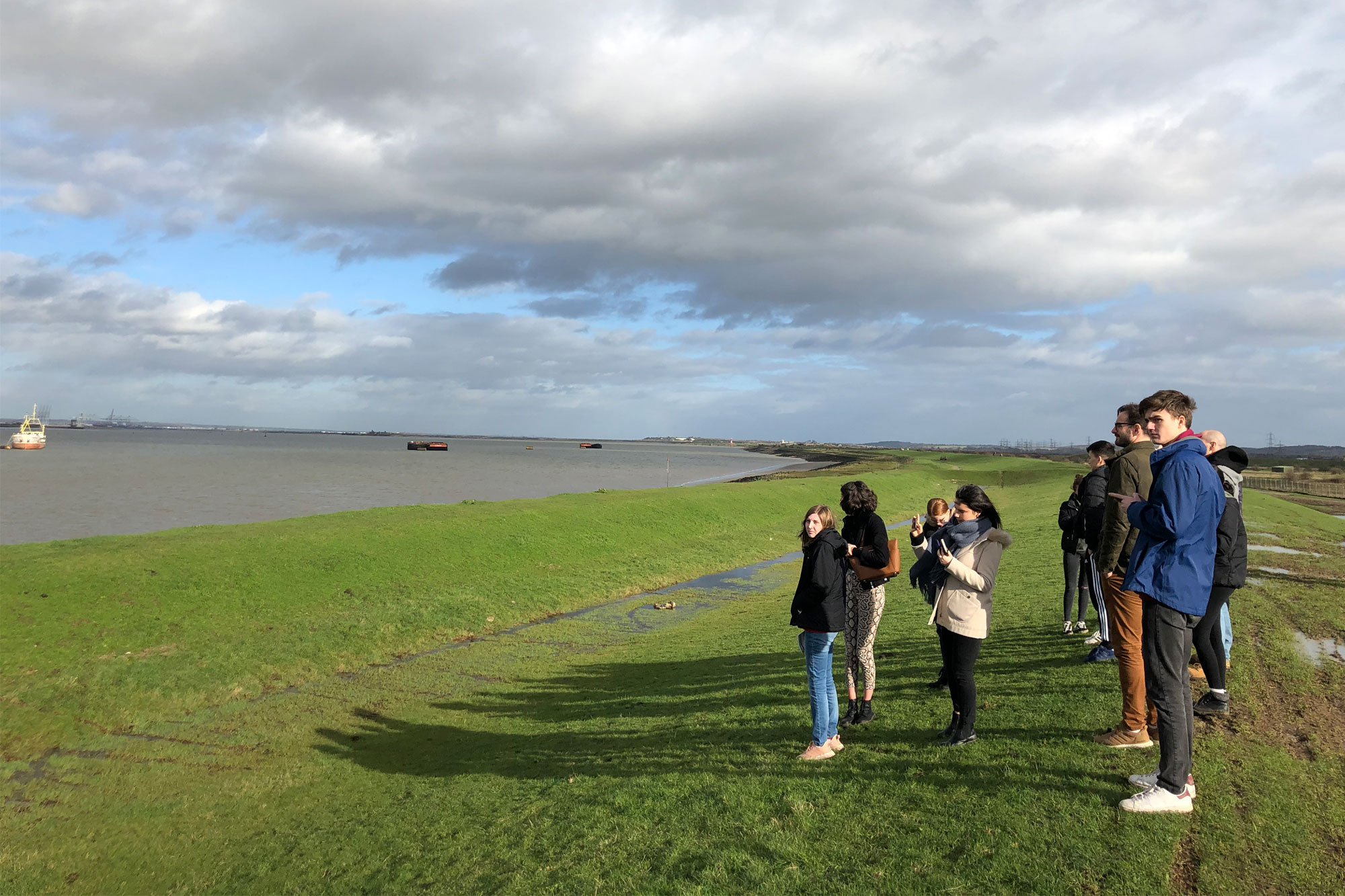The Human Geography and Environmental Social Science Seminar Series at the University of Kent is launching its first series with two inaugural talks in the Autumn term. The seminars provide a forum for presentation and discussion of timely and innovative ideas in Human Geography and Environmental Social Science research and practice. The seminars are co-organised by the Kent Interdisciplinary Centre for Spatial Studies (KISS) and includes speakers from Geography, Environment and related disciplines.
This term, our seminar series is online and will take place on Thursdays from 17:00-18:30, via Microsoft Teams (see link to join below). All are welcome to attend.
Thursday 26th November 2020: 17:00-18:30 [Teams link]
Infrastructure networks and climate breakdown – Professor Vanesa Castán Broto, University of Sheffield
Host: Dr Anika Haque, Lecturer in Human Geography, Kent
Despite numerous calls for action, scientific reports and increasing public support, the international climate regime has struggled to deliver a coordinated global response to climate change, one sufficient to address the challenge of keeping average temperature changes within 1.5 degrees Celsius. The 2015 Paris Agreement consolidated the trend towards voluntarism as a trend in international climate policy. We see increasing evidence that addressing climate change depends on delivering place-based action, addressing climate-change concerns alongside broader sustainable development co-benefits.
Infrastructure systems open up multiple opportunities to address climate change adaptation and mitigation. However, what is less evident in climate change responses is the realisation that reconfiguring infrastructure networks is perhaps the most effective way to address climate change. Off-grid systems provide adaptable and resilience services in areas previously excluded from centralised networks. Off-grid systems are already a reality of life in most cities, where formal and informal infrastructure systems coexist. A post-networked infrastructure landscape (Coutard and Rutherford, 2016) should be part of any climate change response in urban areas.
 Bio: Vanesa Castán Broto is Professor of Climate Urbanism at the Urban Institute, University of Sheffield. She leads the project ‘Low Carbon Action in Ordinary Cities’ funded by the European Research Council, and the project Community Energy and Sustainable Transitions in East Africa, funded by the Global Challenges Research Fund. Her latest books are Urban Energy Landscapes (2019, Cambridge University Press) and Urban Sustainability and Justice (w/Linda Westman, 2019, ZED Books).
Bio: Vanesa Castán Broto is Professor of Climate Urbanism at the Urban Institute, University of Sheffield. She leads the project ‘Low Carbon Action in Ordinary Cities’ funded by the European Research Council, and the project Community Energy and Sustainable Transitions in East Africa, funded by the Global Challenges Research Fund. Her latest books are Urban Energy Landscapes (2019, Cambridge University Press) and Urban Sustainability and Justice (w/Linda Westman, 2019, ZED Books).
Thursdays 10th December 2020: 17:00-18:30 [Teams link]
Putting Geopolitics in its Place: Gibraltar and the emergence of strategic locations – Professor Jason Dittmer, University College London
Host: Dr Jonathan Rock Rokem, Lecturer in Human Geography, Kent
Gibraltar has long been understood as a strategic location. In this paper, Professor Dittmer examines the historical emergence of this seemingly common-sense fact, turning to the rise of relational geography and assemblage thinking to re-theorise the idea of ‘strategic locations’. Jason argues that the ‘unchanging truth’ of geography as asserted by (neo-)classical geopolitical authors is always, in fact, becoming otherwise, as shifts in the compositional assemblages (e.g., military-technological systems, logistical networks, domestic politics) can ripple through the place in question, very quickly making strategic places un-strategic again or vice-versa.
People and ideas are central to this emergence, as are place-based materialities such as terrain, technologies, and even micro-climates. Empirically, Professor Dittmer examines first the emergence of Gibraltar within an English/British cartographic and visual apparatus in the 17th century. He then turns to the materiality of the Strait of Gibraltar and the specific agency of the eponymous Rock, as they both interact with various shifts in military technology and the organisation of empire. Jason concludes with a call for an assemblage approach to place in geopolitics, but also for a broadly framed dialogue across the various ‘camps’ of geopolitics around key spatial concepts and debates.
 Bio: Jason Dittmer is Professor of Political Geography at University College London. He is the author of Popular Culture, Geopolitics and Identity, 2nd Ed. (Rowman and Littlefield, 2019), Diplomatic Material: Affect, assemblage, and foreign policy (Duke UP, 2017), and Captain America and the Nationalist Superhero: Metaphors, narratives, and geopolitics (Temple UP, 2013).
Bio: Jason Dittmer is Professor of Political Geography at University College London. He is the author of Popular Culture, Geopolitics and Identity, 2nd Ed. (Rowman and Littlefield, 2019), Diplomatic Material: Affect, assemblage, and foreign policy (Duke UP, 2017), and Captain America and the Nationalist Superhero: Metaphors, narratives, and geopolitics (Temple UP, 2013).

